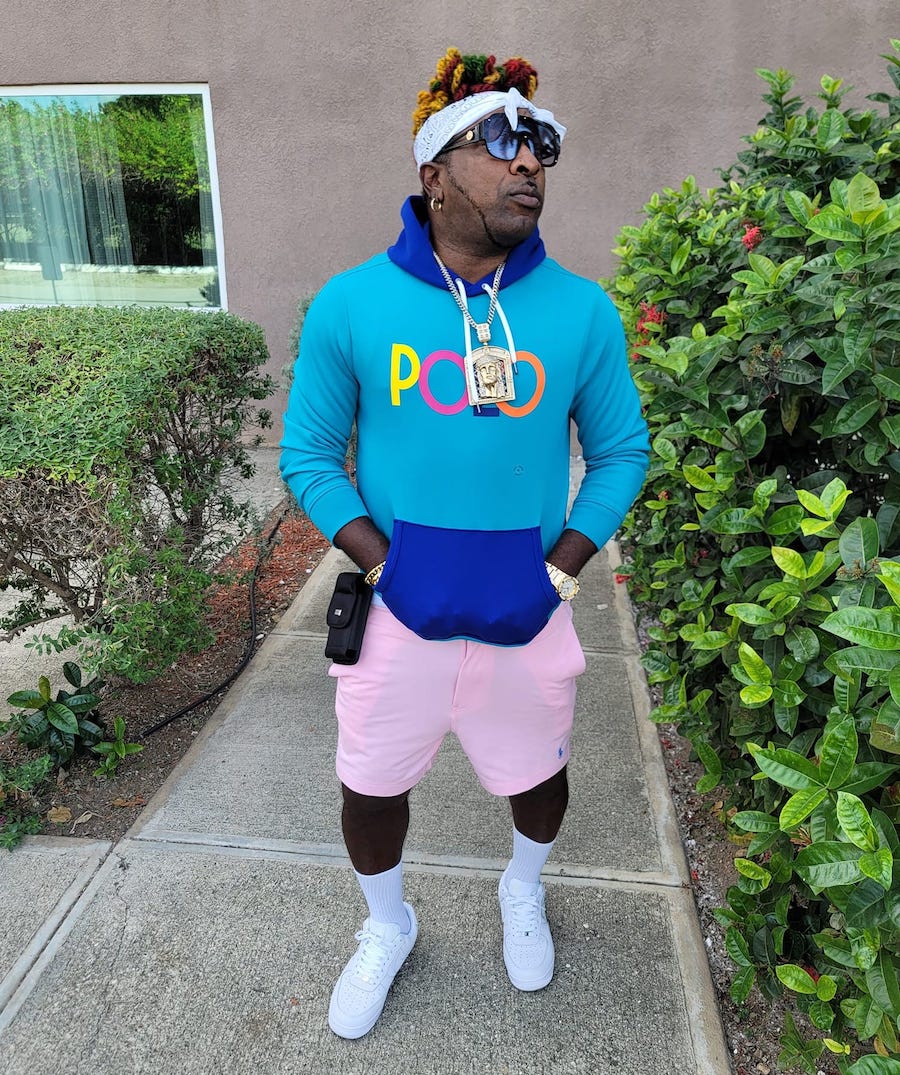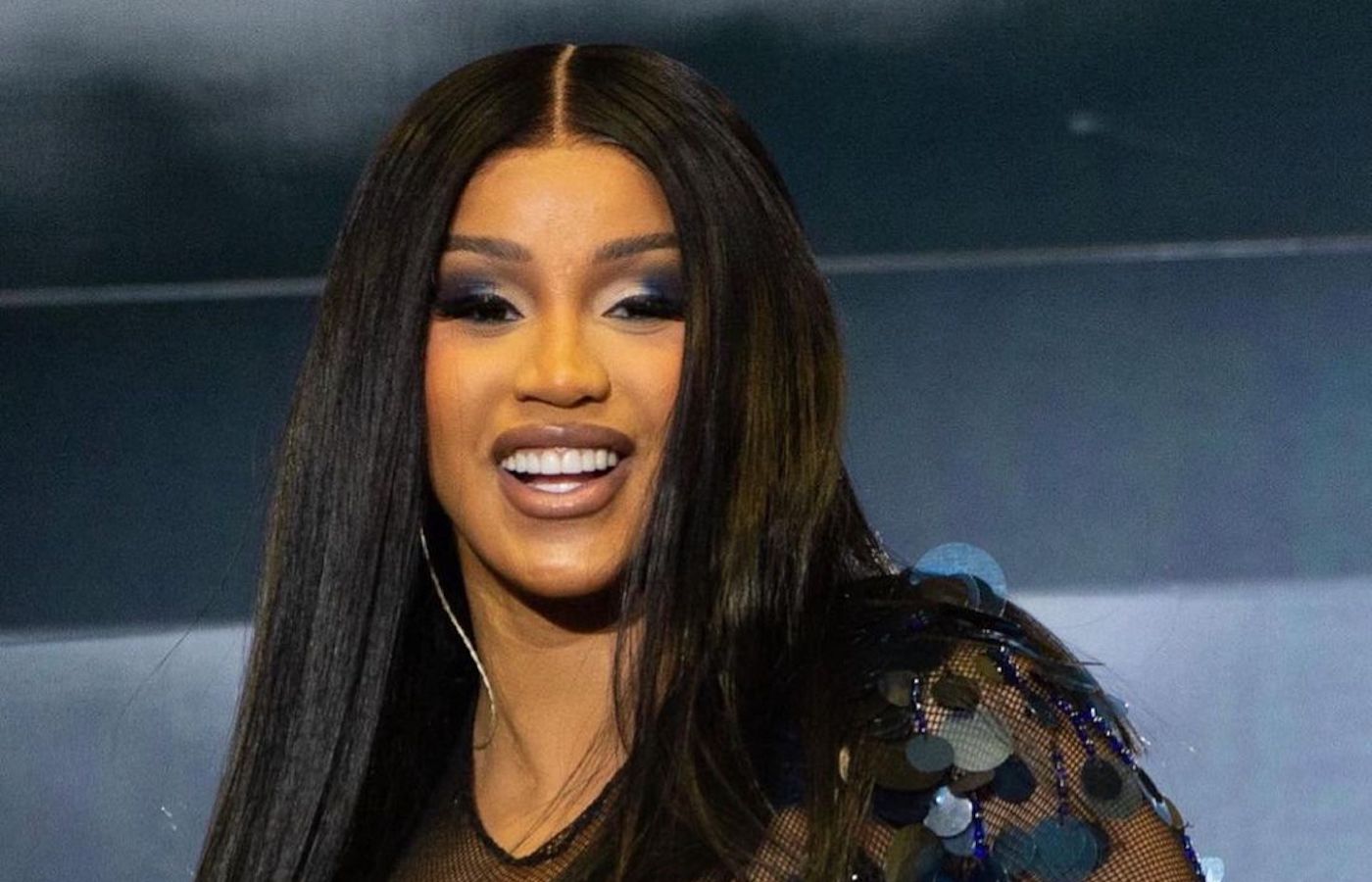Cardi B is denying that she has stolen a popular Jamaican dancehall move called the ‘Willie Bounce’ and repackaging it as a new dance for her remix “Tomorrow 2” with GloRilla.
“Tomorrow 2” was released on Friday, and Cardi B has been promoting the song on her social media pages. In one video, she captioned the dance, “since y’all like my little Bronx dance.” On Twitter, she wrote, “I love this lil dance FYI:I ain’t made this dance (it’s a Ny drill move),” she said.
Cardi B’s video has stirred controversy, with many calling her out for trying to rename the Willie Bounce instead of just crediting the dance and its Jamaican origins.
“Y’all copy everything Jamaicans do and don’t give credit,” one person said to her on Twitter. “Willi Bounce dance has finally arrived at Cardi B. Sent from 2003 Elephant Man,” another person added while sharing a link to the original dance on YouTube. “She just finished watching Sean Paul We Be Burning music video,” another opined.
“No it’s not. This is the Jamaican ‘Willy Bounce’ from years ago named off drug kingpin and pretty bad bwoy Willie Hogheart, now deceased. We’ve been doing this dance for 20 years. Stop your shxt,” another dancehall fan told Cardi B.
Dancing is now a crucial part of the music world, with the latest social media platform, Tik Tok bringing a new wave of popularity and exposure for many artists who propel their music with ‘dance challenges.’ Some artists like Erica Banks, who blew up after her song “Buss It,” experienced the success a dance challenge can bring an artist.

As for the Willie Bounce dance, it has thousands of videos on Tik Tok of people doing the Willie Bounce Challenge. The dance move was created by the late dancer Bogle and named the ‘Willie Bounce’ to pay homage to his friend Willie Haggart who was shot and killed. It is now a signature dance move by many, including artists like Sean Paul and others who pay their respect to Bogle for his life and work.
In later tweets, Cardi B denied that she was doing the Jamaican dance. “Willie bounce was like this but not really on this one you hitting it two times … don’t try it,” she responded to a follower on Twitter, calling her out for trying to rename the dance.
The dance move that Cardi claims is a drill move has also been compared by Twitter users, with many Drill fans pointing out that the dance she wants to do is different from what she actually did as those require one to pump their arms up and down in a straight line rather than bend over and cross the wrists to the chest as the Willie Bounce requires.
While some might view the mix-up as just a faux pas, many creatives have complained about their work being copied while they were unable to get the attention or money from them, especially on Tik Tok. Last year, there was a push by creators to copyright their choreography so they could earn from it.
I love this lil dance ????FYI:I ain’t made this dance (it’s a Ny drill move) pic.twitter.com/oWNuICu4gz
— Cardi B (@iamcardib) September 24, 2022
Wilkie bounce was like this but not really on this one you hitting it two times …don’t try it https://t.co/4IMcN3ytYi
— Cardi B (@iamcardib) September 24, 2022
Can’t hold you cardi. This deff the Willie bounce. A shotta move, that’s my move. https://t.co/H2KQiyIH9h
— Shaq ????? (@Flashprezzy) September 25, 2022
Cardi thats the Willie Bounce made popular worldwide by Elephant Man https://t.co/8MCb78MMjF
— ?12/4 B&B Miami ? (@Lightshow_Leemz) September 25, 2022
Ten choreographers, mainly indigenous and people of color, have been fighting to be recognized as the originators of their viral TikTok dances, which include the dance moves for Megan Thee Stallion’s “Savage” and Cardi B’s “Up.”
The creators for the “Up” dance are Mya Johnson and Chris Cotter, who have been working with another creator, JaQuel Knight, who is the first choreographer to copyright his dance moves to Beyoncé’s “Single Ladies (Put A Ring On It)” and making it possible in the world of Tik Tok to own, monetize and be credited for their creativity.
Knight has been working with other choreographers to secure labanotations, a notation system for recording and analyzing human movement that helps to secure copyright.
